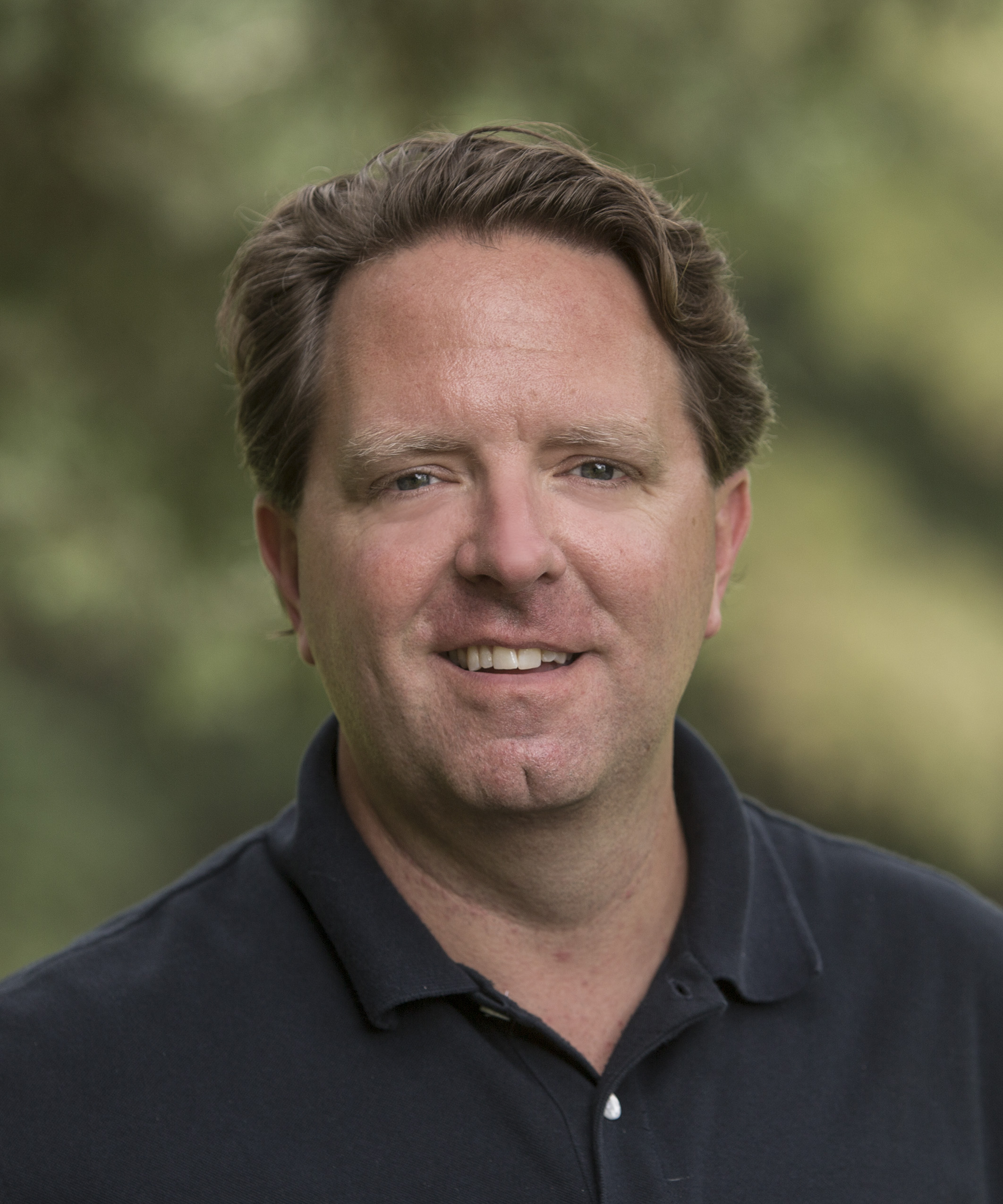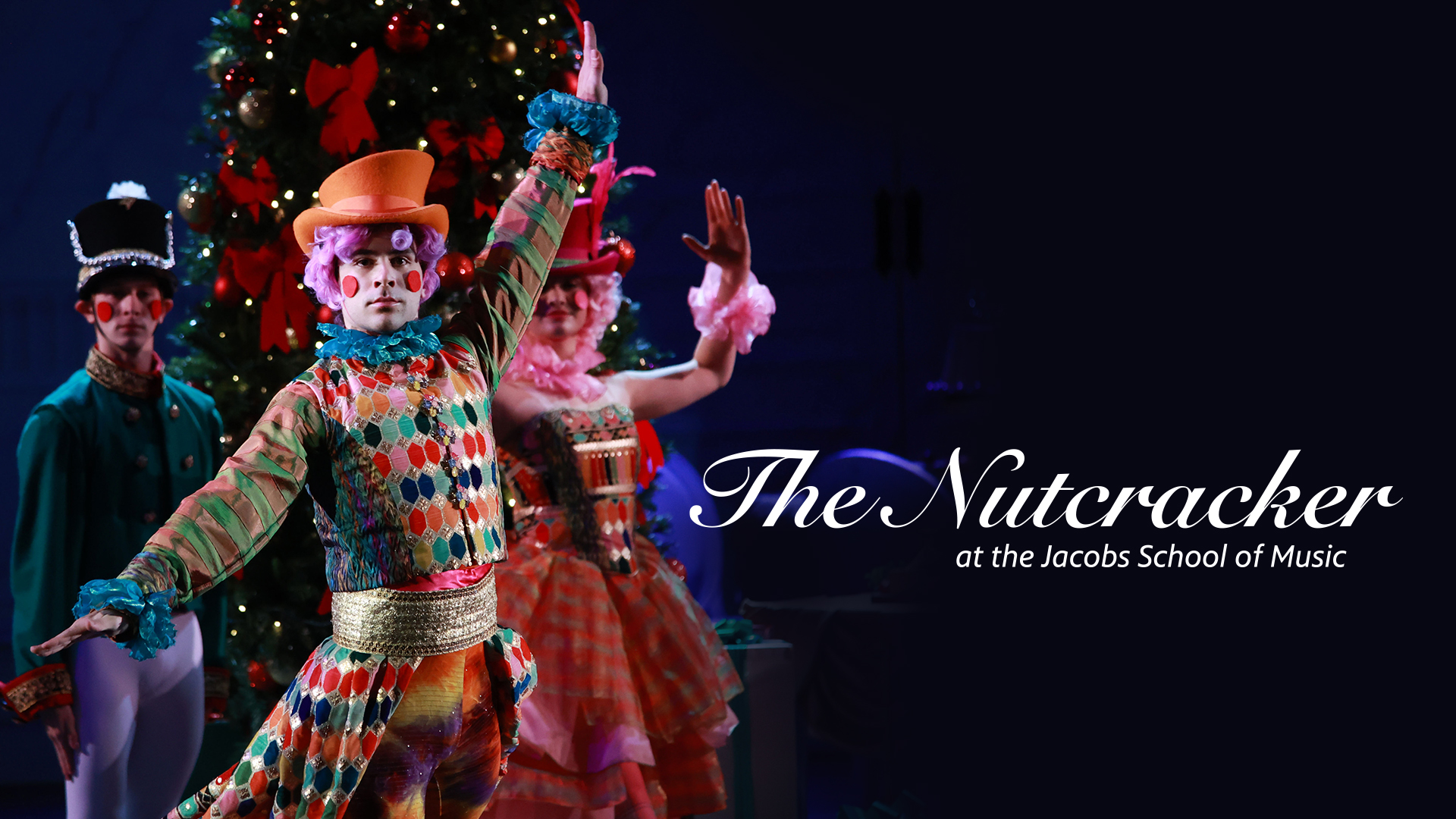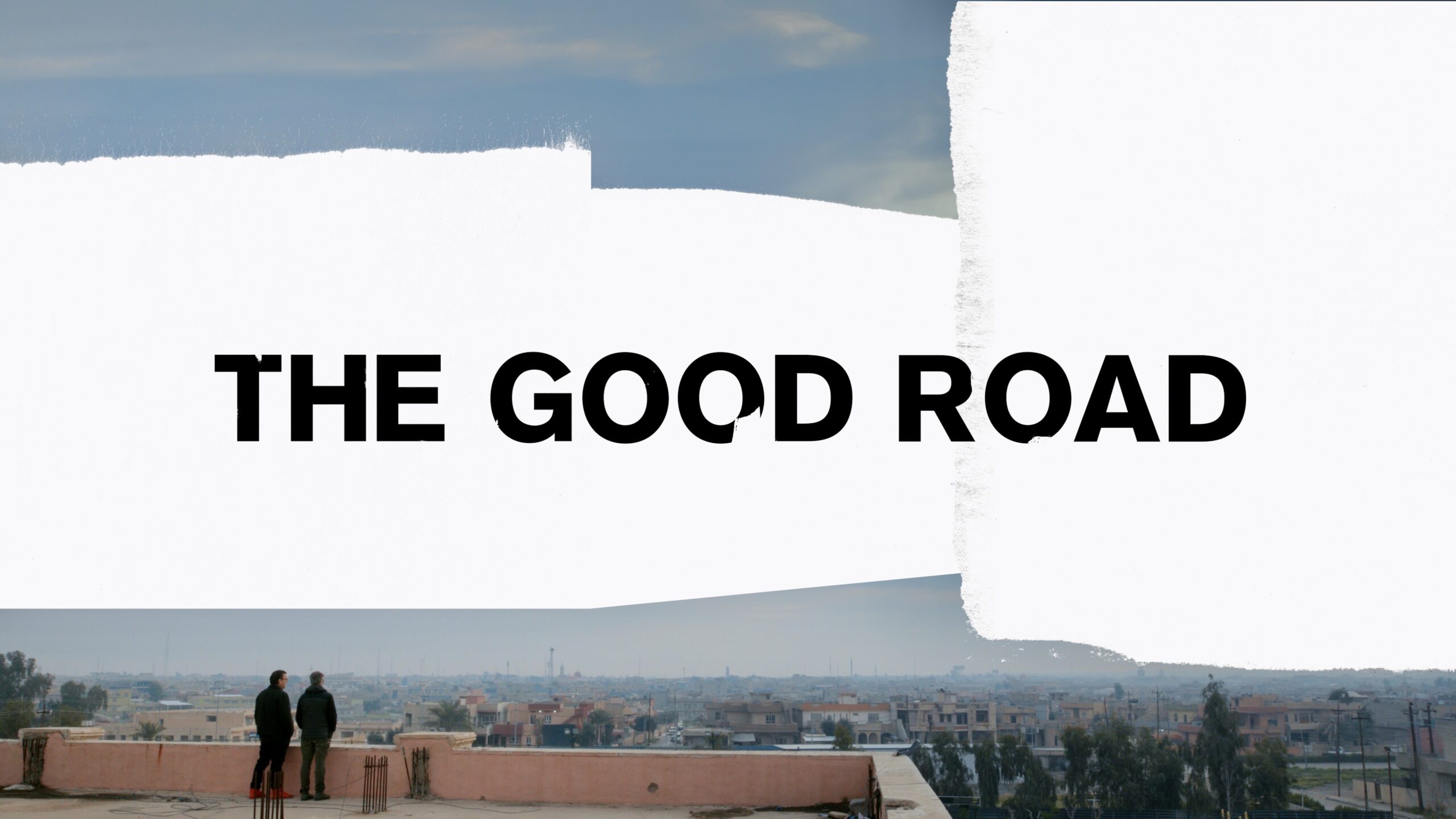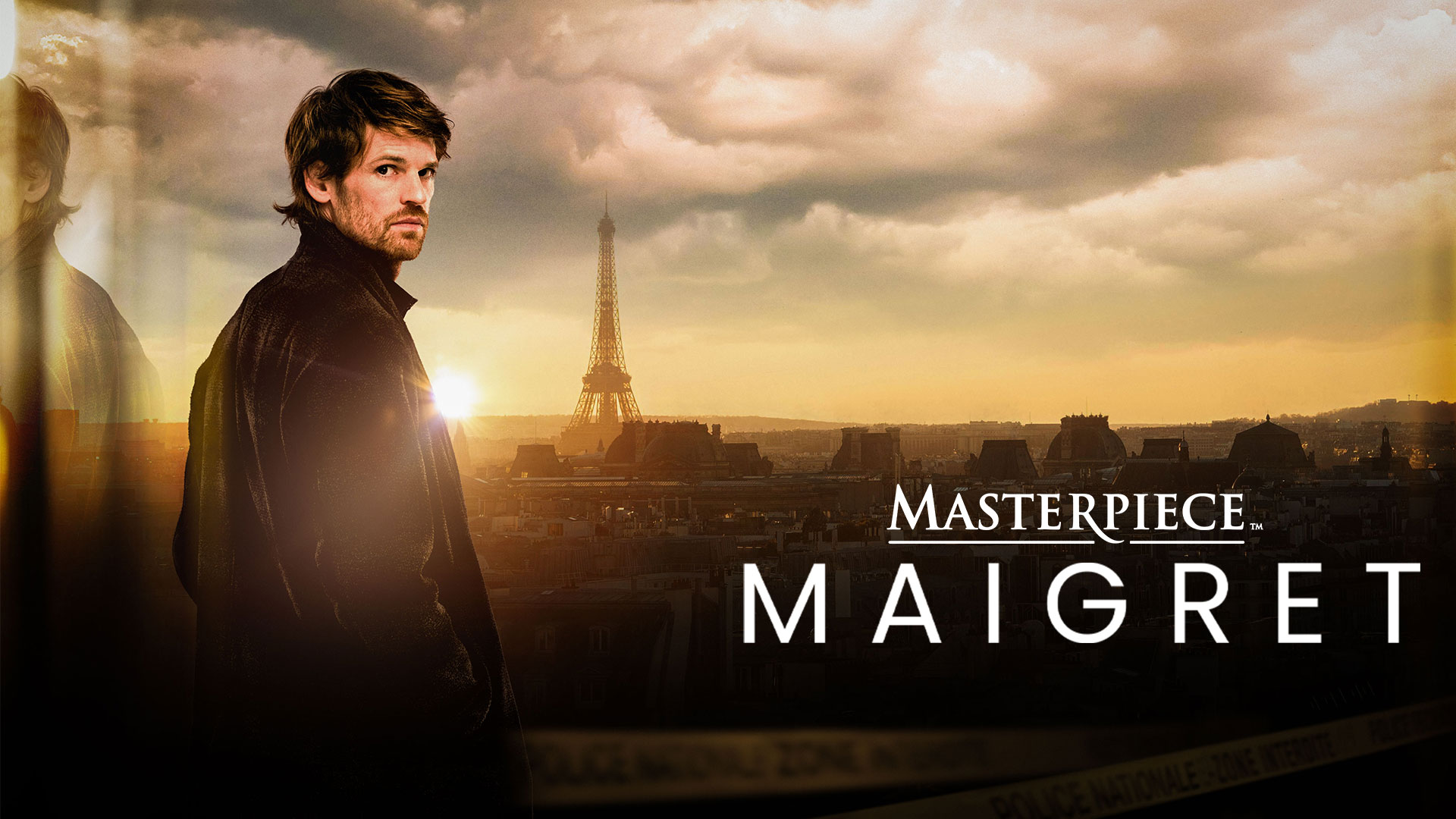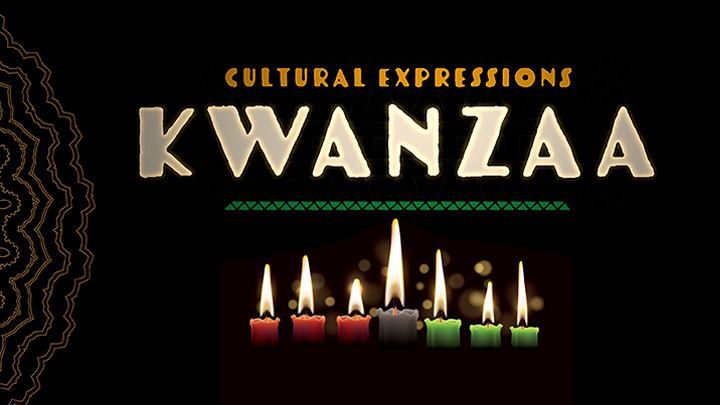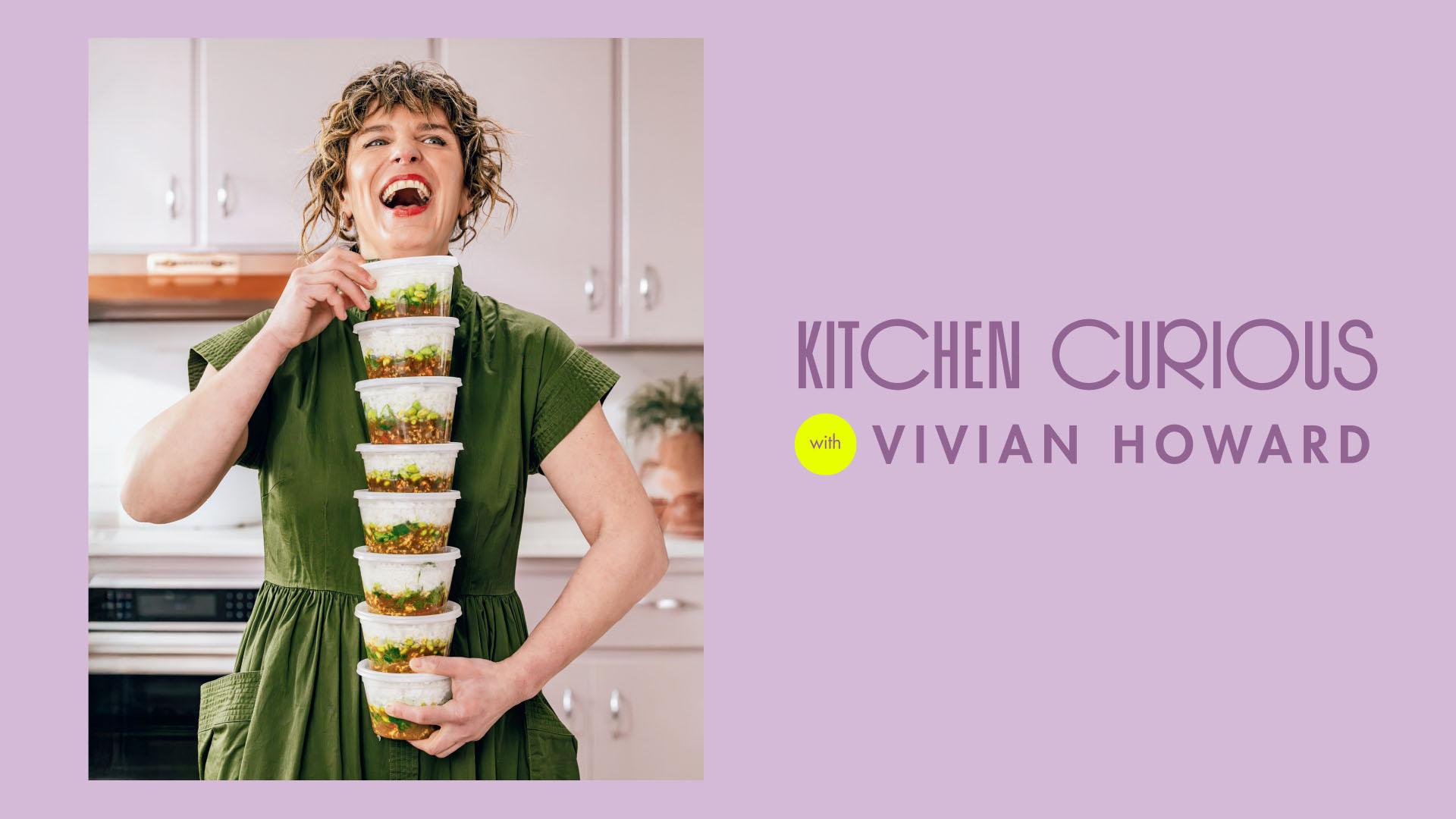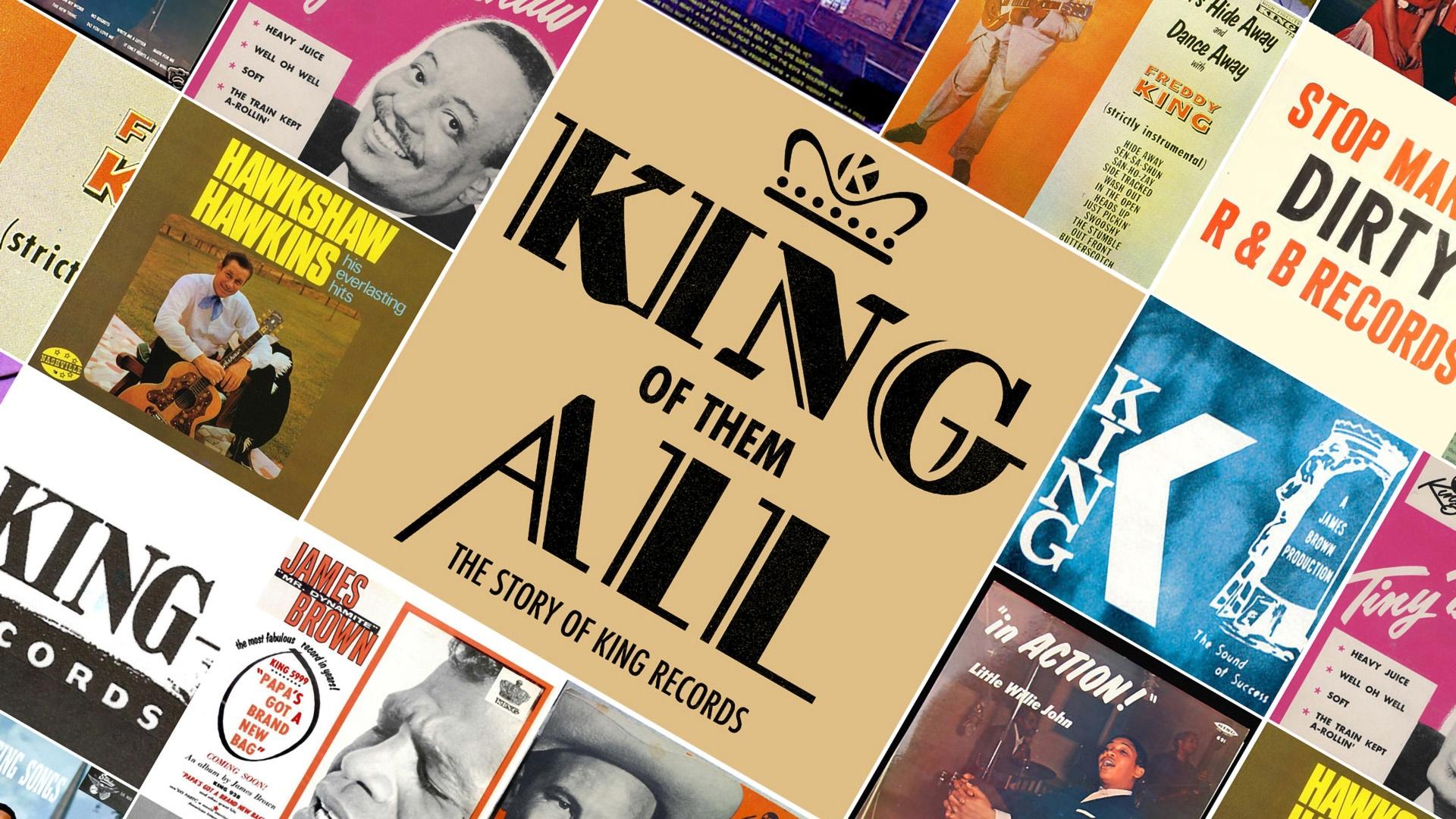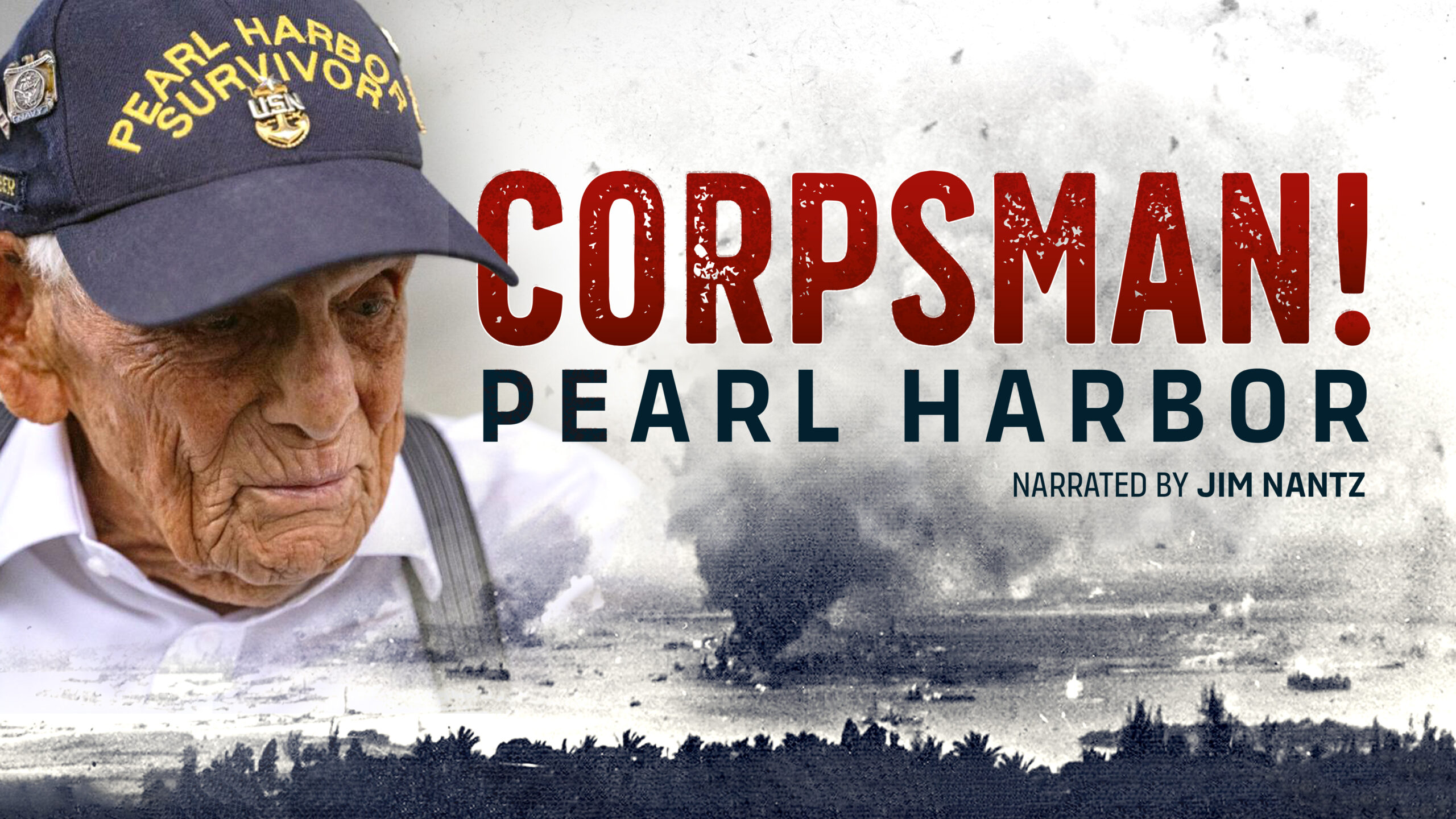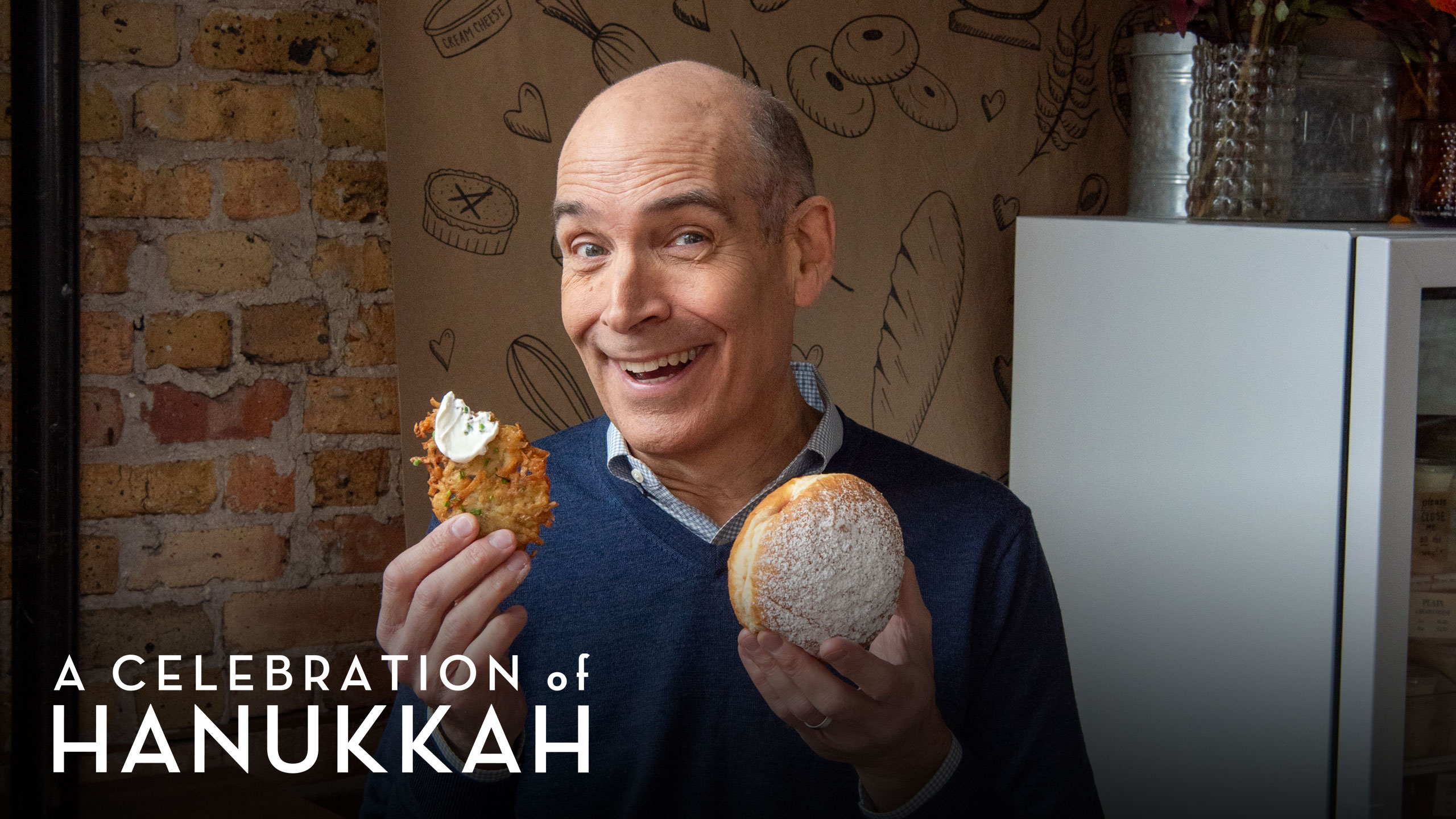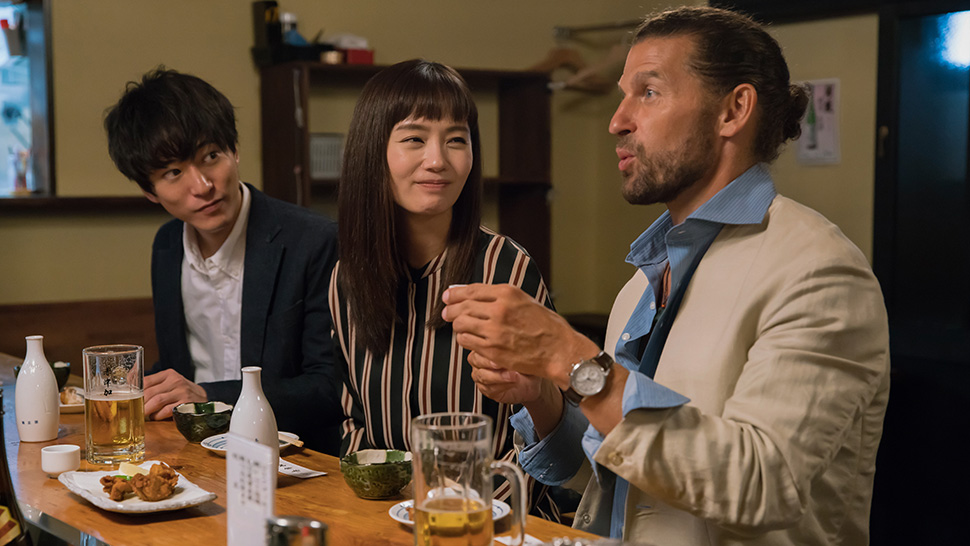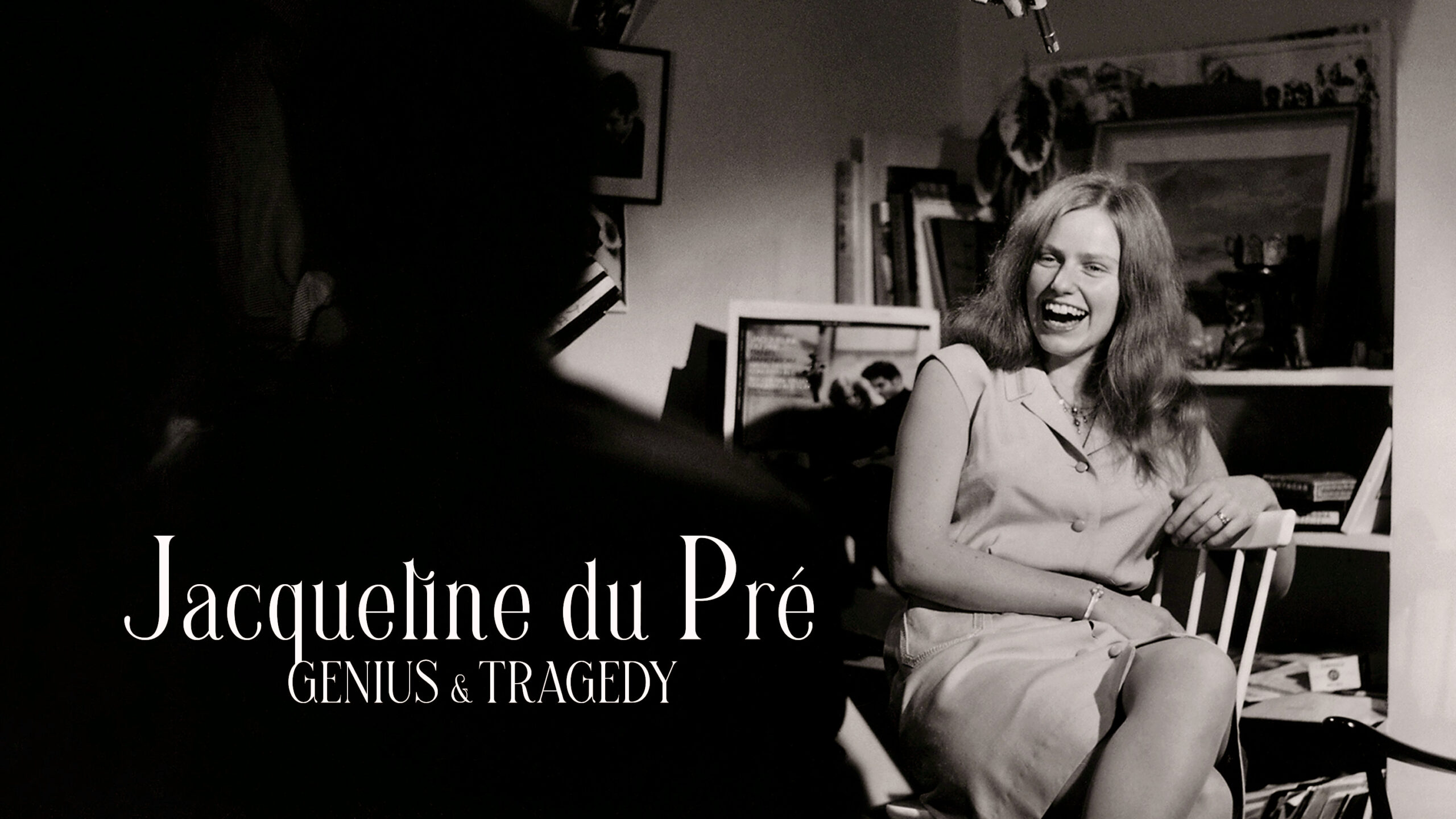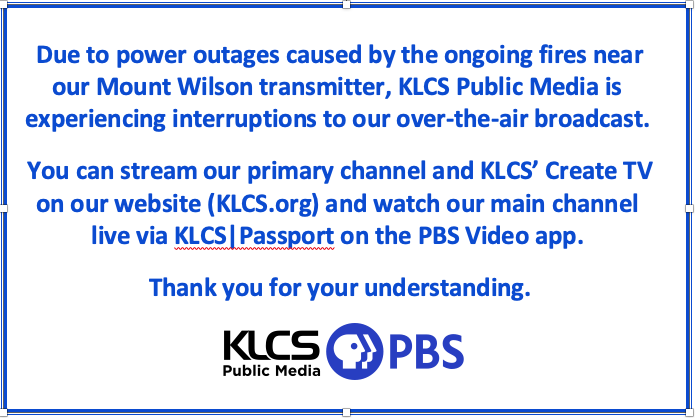Many families are downsizing; whether it’s because of a move, cleaning out their parent’s old homes after a death, or just realizing they have too much stuff and need to declutter. KLCS airs the popular show “Legacy List with Matt Paxton” on Mondays at 8 p.m. and it’s also seen on CreateTV. KLCS spoke to Matt where he talks about his days on the cable show “Hoarders,” how he came to create this positive show, now on PBS, the impact the show has on viewers, how our stuff holds us back from living and gives tips on decluttering your life.
Matt, when we talked about expanding beyond interviews with PBS celebrity chefs, I was excited to talk to you first. It took me a while to get into it as it’s a one-hour show, but I delved-in during a marathon on CreateTV. I was surprised at the credits to see a production company (MYTV) that does shows for cable producing this show. What was the path to creating this show?
Look, I wanted to make real TV and they make the opposite, they make a show about ghosts (laughs) and (Michael) Yudin is a very good friend of mine, the guy that started that company. I was on “Hoarders” for 13 years and that’s a show about drama and it’s a show about mental health. And I said, “Hey, I just want to make a positive show about aging Americans. And you can imagine how many “No’s” I got. I tell everybody I got A & E an Emmy® for “Hoarders” and their response was, “Are there any attractive granddaughters that would fight over this stuff?” And they were serious. (laughs) I was like, “I’m sure there are, but I’m not interested in that kind of show.” So, I had actually given up on making the show and Yudin had just been a mentor and a friend for a long time and he’s like, “No man, don’t give up if it’s what you really believe in. It’s really honest and it’s very real and eventually it will find a place.” So, I’d kind of given up because people don’t want to put anybody over 40 on TV and specifically seniors downsizing. And then I met some folks at PBS and they were like, “Yeah, that sounds fascinating. What kind of stories are there?” For them it was a no-brainer. So, I went I went back to Yudin and was like, “Hey what do you guys think?” Really, I just wanted the least resistance, I didn’t want a big studio, I didn’t want someone that was always trying to make me put on attractive granddaughters; I just wanted to make a positive, you saw it, it’s a very slow, long-form show. And I’m proud of that. It wouldn’t go anywhere else but public television and I love that. Any other network would have canceled it and here we are with an Emmy® nomination on the first season, so I think we proved that he concept was there, but I had to pick the right partners that wouldn’t just go to traditional TV norms and ruin it.
I didn’t know who you were since I hadn’t watched the cable show you were on, but what was the aim of “Legacy List” when you started?
I keep coming back to “positive”. This was right in the middle of the Trump administration and not to get political, but it was such a negative world and I was just like, “We need positive!” And all these clients of mine were super positive. About half my clients were hoarders and the other half were just grandma’s that had too much stuff. They would call me and say, “I’m not a hoarder, but, I’ve lived I this house for 50 years.” And I really wanted to make a show that did not focus on the volume of stuff and it didn’t focus on the financial value of stuff. I really wanted to focus on the emotional value, because when I clean a house, that’s what you have to rely on. You can’t be like, “Oh, this thing is worth $80 bucks” because then they’re like, “Oh, I’ll keep it.” (laughs) And they don’t get rid of it. My whole job for 20 years was to help people empty their houses. I just want to tell the stories of these families through the items in their house. I knew the items would be a stepping stone, a good story starter for us, but I didn’t want to go into how much was it worth. “This is your grandfather’s? Great, tell me about your grandfather.” And what we didn’t know was every family comes back to a really strong woman somewhere along the way that saved the family. Now, by Season Two, “Tell me about your great grandma, what does she do?” It doesn’t take us a whole family to find out. I just tell them, “We always find a strong woman that saved the family. Who is it in your family?” “Oh, it was my great aunt! And this is her bowl!” The first season we were just figuring our way around. I was just trying to not make “Hoarders,” I wanted to make a super positive show about aging Americans, it was like visiting with all my clients on their front porch. Like – how could I put that on TV?
Knowing that you have to find a sponsor or underwriters for the show, to get it on PBS, how hard was it to get the show on PBS and launched?
It was, we’re very lucky, we have a presenting station in VPM which they were able to cover a lot of the cost the first year. But it was a “Hey man, this is all great but you’ve got to go get sponsors.” And I just truly believed at the end of the day, if we make a good show, the sponsors will come. And that’s either brilliant or naïve. But my business career it’s always – if you make a really, really good show and you actually make a difference. If you do what everybody else is doing, you’re not going to get sponsors. If you do something different that’s actually meaningful, then you will. And that’s what we sought out to do. And the comment I get is, “I laughed and I cried and I called my mom.” Boom, that’s what I want. That’s exactly the emotion we want, we want you to laugh and cry. Once we got to that level, sponsors started really coming to support us, which was great.
I would think there are companies or organizers that would want to sponsor the show because this is such a necessary part of life now.
Yeah, there’s 100 million people getting ready to go through all their stuff.
Also, people who aren’t retiring, people have a lot of stuff.
People just have a lot of stuff, and the stuff is holding us back from living. And the pandemic did tell us a lot of things, but it told us that we’d rather spend more time with family than buying a bunch of crap. What we’re seeing is, my parents had to beg our grandparents and had to make the decision for them of where to go. Our parents are not going to do that, our parents are going to make the decision on their our own. They’re going to take charge and that’s pretty cool. So, we’re seeing a massive amount of people coming out of the pandemic effected by isolation and time away from family and friends and they’re like, “No man, I’m not going to spend the next 30 years in my little house. Let’s sell this thing and let’s go live a better life.” So, I do believe it’s all tied to the stuff that holds us back from having a better life. And you’ve just got to get rid of it. The way I wrap my TV and my new book, I have a book with AARP out now, it’s called “Keep the Memories, Lose the Stuff’; we were number 53 last week on Amazon’s top 100 list, that means there’s an issue here and people are wanting to find a way to get help. I think it’s all just timed right with the pandemic, and people of all age groups are ready to get rid of [their] stuff and start living again. And I love that. And I think what the show does and what the book does, is it lets people remove memories from the stuff. You can get rid of the stuff, but you’re always going to have the memories. One the thing I didn’t know was going to happen with the show, by putting the family on the show, it now makes that family’s story live-on forever, basically on Create, just the way you watched it, you got to watch five or six episodes, and now we’re seeing families want to be on because they want their family’s story told because they’re just proud. And this is so cheesy, it all comes back to love. We love our families.
You must get many people willing to open up their lives and their stuff. How do you choose? It’s not to make money, but to share, they don’t mind sharing their stories.
They really want their stories told; we don’t pay them any money. They get some help from some of the top experts and they get research from our history team, our research team is really the valuable part there. But at the end of the day, it’s not about money; they just want their story told. We’re on PBS we don’t have any money (laughs). But I will say, some people, they just wanted their garage cleaned. They didn’t know where to get started and they just needed help. They were private people, they probably would rather have not told their story, but they did know their story would be inspiring for others.
I noticed your show didn’t miss a beat since March 2020, you seem to film new episodes afterwards.
VPM allowed us to film in the middle of the pandemic. We had very strict Covid protocols. Our belief was if we didn’t go back out, we probably wouldn’t come back ever. So, we really thought it was important and the families needed our help; we had cast them all. There was one lady we had to tell her “No.” We didn’t think it was safe enough for her, she was really disappointed, she was not willing to say “No” and we had a doctor verify it and that was really a bummer. We were surprised that we were able to still go out and film. We shot a lot more outside than inside, you’ll notice Season Two the majority of the scenes are outside, and that’s why.
When I watch how in each episode you miraculously clean out a cluttered barn, attic, or basement with decades of clutter, I always wonder what happens to all the stuff? Do you just donate it for the homeowner to a charity? I hope most of the stuff goes to others who can use it.
We’re heavy on donation. I am Goodwill’s donation ambassador; so I do a lot of education for Goodwill, teaching people how to donate. What I tell families is, “What does your ethics match up to whatever group you like?” Is it a Catholic charity or an immigration group, whatever it is? But I really push donation over sell. Some families and some items just need to be sold. We had an episode this season that the guy had a 75K guitar collection. That’s not something you donate. The good news is myself and my team we’ve been doing this for 20 years so we’re able to call in the best experts to help on any item. But at the end of the day, it’s what’s best for the family. The majority of families in the situations we get into, they do lean heavier on donation than selling, because you’ll never be happy with the amount of money the sale gets, you will be happy knowing that someone else got helped. You only throw something away if it can’t be donated, recycled or sold. I want to stress: we have a team of eight guys that worked for 20 hours to get you that scene! That is not something that happens in an hour. Mike Keller and his team are former employees of mine and I’ve worked with these guys for a decade cleaning out houses, so you have some of the best guys in the country cleaning the spaces out. We’re right there with the family; they’re right there making the decisions with us.
Have you thought of branching out to people who need this help who don’t have treasures? Like every state having a team of what you do to help them go through their stuff?
I used to have a very big company that did that and that’s’ what I did for 20 years. I had a professional business that did that before I was on TV, and even after I was on TV. I have started collecting children, I now have seven children. I am not working in the field as much as I used to, but we work with a group called NASMM, which is the National Association of Senior Move Managers at nasmm.org. It’s about 2000 professional teams that do exactly that. And I train them and work with them. These are primarily female-owned business that started helping people downsize because they had to do the same thing with their families.
What you do is so important.
My dad and step dad and both my grandfathers died when I was 24, so that’s literally why I started doing this. I was a kid, and my grandpa always told me, “If something sucks, you need to do that as a job because people will pay you to do it.” And I started doing it, so I’ve done this for 20 years and I’m now doing it on TV. I always did the “Hoarding” work because it was people who really needed help. But this was what I was doing from day-one, helping people clean out estates, helping people downsize their homes of five generations. We tell people keep one set of china or plates.
I have to go through my stuff in the storage unit I’ve had for years.
I just did this, I had to move last year. I have a new blended family – seven children, my wife had four and I had three and that’s why I moved. I lived in the same house for 30 years, the house I grew up in and I had to downsize it and I had to go through all dad’s stuff, all my grandparent’s stuff and I had to follow my own rules. And it’s one thing to give people advice, it’s another to follow them. That was right when I was writing my book, I was halfway through the book and I had to go back to Random House and be like, “Yeah, I have to change this book. I know we’re halfway through the outline, but I was wrong.” (laughs) I said, “I’ve moved and I’m going through all these rules and some of them suck. Now I know how hard it is to leave, the fear of missing out, and the guilt of throwing things away. I hadn’t put enough emotion into the book, because it was so focused on skill set; that’s easy. It’s the emotional stuff that holds us back and the show and the book talk about that. You’re going through it.
Everyday I think about my stuff and I’m worried I’m going to want it all; I can let go of my own stuff maybe.
You won’t. You can let go of your stuff but not your dead parents’ stuff. And that’s a guilt that we naturally have.
What do you do when you’re not filming the show?
I’m a father of seven, so I clean (laughs) and organize, every day. I still help some clients. I help a lot of families that just call for advice, like “How do I get started” or “What do I do here?” and the last year I wrote this book. So the last two months has been doing a lot of podcasts, interviews and helping people. Answering a lot of questions. I create a lot of content for AARP, I’m their downsizing expert and then I partnered with Goodwill to actually help people donate more stuff. So, I’m creating a bunch of content for Goodwill to help people downsize.
The reason I did that was, a lot of people get jobs because of Goodwill, and not just in the stores. They do a lot of work with workplace development and so when I truly found out how many people get jobs because of the donations, I started getting a little more involved with them. So, I’m spending a lot of my time this year helping the folks at Goodwill. But a lot of times, I’m still helping families. But I’m not in homes everyday anymore.
I loved so many episodes. What are some episodes that touched you and do you think a follow-up might be fun to do?
Yeah, Anne Manley the very first one meant a lot because she was the first one to do the show. She’s the first one that called me and said, “I’m moving back!” (laughs) So I’d love to do a follow up with her and see where she’s at. She’s the one where her father was the POW, in Season One. My favorite episode was this season, Zebulon Miletsky. We got to hear his dad’s voice on reel to reel. It was in Boston and his mom was moving from Boston to New York. That was so emotional. He said, “Man, if I can just hear my dad one more time, that would be amazing.” His dad was really big on reel to reel and we found the reel to reel and were able to find a bunch more. The crew didn’t let me hear the reel to reel either. So, Mike found the tape that had his dad on it. Neither Zebulon and myself got to hear it [beforehand] and we hit play and we immediately hear Zebulon as a child talking to his dad and his dad’s voice. We both pretty much burst out crying, because it was so emotional for both of us and it was really special. I’d love to go back to every single one, I love them all. They’re all really cool people. They’re really sweet, cool people that are at a point in their life where they’re just ready to share stories.
What did you do before this whole chapter and the career you have, helping people clean out clutter?
I was an economist for the Federal Reserve, believe it or not, and then I was an economist for Caesar’s Palace casinos and I was a very young kid. And I hated it. So, I quit that and I invented a cleaner, an all-natural soap for flip flops called Paxton’s Sandal Saver. And I did that for three years and then I just started cleaning houses. But I’ve been doing this for..I was 26 when I started doing this full time. But I had a natural soap, a spray in a bottle that helped you keep your flip flops from smelling; I did that for almost four years. But honestly, most of my adult life I’ve been cleaning houses. And I’m almost 47.
You came to do this because your father passed on, right?
Yeah, my dad and my stepdad and both grandfathers died whithin about 18 months. So, I had four houses to clean. And it was very physical and emotional. My grandfather was a simple man, he said, “Hey, if something is hard, do it as a job because other people will pay you to do it.” And that was always in the back of my head and that’s why I ended up doing it. Still doing it. (laughs) I was 24 when my dad died and 26 by the time everyone else had passed. It still took me another year to embrace it as a fulltime gig. I actually thought I was going to do something else big; I didn’t know what. And so, basically, this was like my side hustle; just cleaning houses till I figured out the next big thing and then after doing it for three years, I was like, “Maybe this is the next thing!” (laughs)
What do like most about the show? What’s the favorite part of your job?
Oh man, the stories. I just love the stories. I love hearing everybody’s stories. I love visiting with people; I love hearing how it was like to grow up on the farm, or hearing what their first job was, things like that. I just love hearing people’s stories. I also like seeing people do more than they think they can. Most of the time they think they can’t do it. Like, “Oh, I’ll never be able to do this.” And they can. They just need to be pushed. And it’s really fun to see people do it well.
I also love your team; how did you find them? Was it hard to find people who would want to help clean out other people’s clutter and homes? I recall you said on an episode you knew Avi because you grew up together, so I assume some of the team like Jaime shifted careers as well to what they do now with you?
At one point or another they all worked for me when I had a business cleaning houses. It was a hard push 10 years ago to come do it, but by the time we were doing the TV show it was just what we did every day for a job. So, we worked together in houses for about five years. Mike and I would go to barns and clean out big houses, we would do all of that every day. That was just our job. Jaime didn’t really want to be on TV, that was hard to convince her to go on TV; she just wasn’t interest in that part of it. What’s kind of nice is we’re just there helping people, so it’s not really a hard show like “Hoarders.” “Hoarders” was eight days, it wears you down to nothing. But “Legacy List,” we’re just there helping families for a couple days, it’s kind of simple.
As we get older, we need to declutter. Do you have any tips for us?
Start, don’t wait. What I mean by that is do a little bit every week. Most people wait. I’m really about literally half an hour a day. But don’t save it for all on big Saturday because that just wears everybody down. And it makes it really hard to keep up with it. And then, believe it or not, tell the story. Just keep sharing the stories because if you share the stories about the items. Then it separates the emotions. That’s literally the whole point of my book “Keep the memories, Lose the Stuff.” It’s all about – just get the stories out, so you can separate the people from the stuff.
Do you get recognized in public, and if so, what’s the most popular question you get when people recognize you? What is your answer to that?
All the time. And they always want to know “What’s the grossest thing you’ve ever seen?” And I try to steer away from that because that’s a negative-based question (laughs) so I try to steer it back to what’s the coolest thing I’ve ever seen. The 44 star flag was pretty special. I found millions of dollars in stocks; that was cool because I changed a family’s life. We found $2 million in old stock certificates that the family just didn’t even know existed and that significantly changed their life. Changed their family’s trajectory forever, financially. It’s not always about money, but man, sometimes it is. And this family really needed it, so that was a blessing from a loved one, which I thought was really cool. I try to just keep it on the positive, I love to tell really interesting stories of what people have found. I did find 300 cats one time and that’s pretty aggressive. And what I’ll tell ya is, the craziest thing about 300 cats, is those first 50 they’ll walk right up to you; they’re pretty easy. But man, the last 50 they’re wild animals (laughs), they’re not looking to be found. So, catching the last 50, that was something else, I’ve got to say. And they were crazy; we had to put on chainmail they were so aggressive. They were wild animals looking to really hurt us, because we were in their home. It was 300 wild cats that had lived in that house forever. That was a lot, I’ve got to tell ya! So, you have to have respect for those animals because it’s their home not yours. So that was very hard. I try to keep it on the positive. And we get to see families really relive their past and it’s really special and it’s really positive and I’ll always love doing that. I honestly believe I have the best job in the country and what I tell people is, “I get a hug and then I get a check.” And that’s pretty awesome. You’ve got to understand, 20 years ago, when I started this, it was just something you did because you were a grandson. It was just what grandkids did. That’s how I got my start doing this. My grandfather would tell me to go to my aunt’s house and help clean. Not for money. You just did it because you were expected to do it. And, nowadays, kids don’t do that, so I’m really lucky that I get paid to do it.
It must be very fulfilling being able to help people who need help getting rid of their stuff.
Oh, every day, I get a letter every day. I got an email last night from a lady saying “Hey, you haven’t really helped me declutter, but I have some memory loss and watching your show has made me remember some things.” She’s like, “Thank you so much for making the show.” That was a random email from a stranger last night. That’s awesome! I get something like that every single day. Yeah, it’s really fulfilling to know that what we’re making actually makes a difference. It actually helps people. And then when you’re helping someone declutter you get to see them live their life again. There was a guy a couple years ago that I moved, and he was super nervous when he moved. Didn’t want to do it; he lived in his house with his wife for 50-plus years and she passed away. And he was really, really nervous to go. And I ran into him a year later when I was moving somebody else, and I said “How’s it going dude?” He goes, “Well, I can drive and I like to dance. I’m having a good time. Life is good.” (laughs) And he was just happy, he had joy in his life again. And that’s really fulfilling and the stuff, a lot of times it holds us back. And it was just really awesome to watch him, like have a good life again.
Anything you’d like to add to our Los Angeles viewers?
If they’re inspired at all, if they want help, all my tips and my advice is in my new book “Keep the Memories, Lost the Stuff.” If you think your stuff is holding you back, get started. You can do it. Watch an episode and sort through a box while you’re watching an episode. And when the episode’s over, stop and do it again the next time you watch an episode. But just getting started, it will get easier and easier and you can get the life you want. You’ve just got to start slowly going through the stuff.
Watch Legacy List with Matt Paxton on KLCS, Saturdays at 5 PM. For a complete schedule, visit klcs.org. To read more about Matt, check out his website: iammattpaxton.com, or follow his social media: Twitter @IamMattPaxton and Instagram @iammattpaxton.

